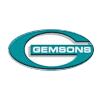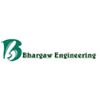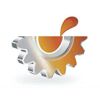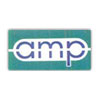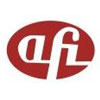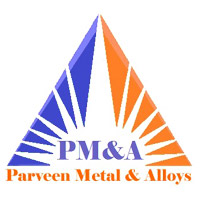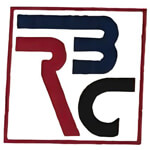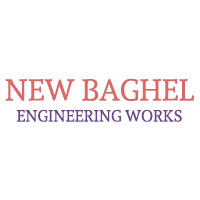Top Suppliers of Forgings & Forged Components
-

San Exports
Industrial Area A, Ludhiana, Punjab, India
Forgings, Accessories, forgings, Body Parts and Accessories, forgings, forged linch pins, Linch Pin Forged -

Gemsons Precision Engineering Pvt Ltd.
Goregaon, Mumbai, Maharashtra, India
aluminium casting parts -

MetalCast & Alloys Pvt Ltd
Rampura Industrial Area, Yamunanagar, Haryana, India
Aluminium Alloy Castings -

Precimax Engineers
Warje, Pune, Maharashtra, India
Roll Forming Dies, Blanking Dies, Stainless Steel Gang Piercing Dies -

Electro Dies & Tools
Jaipur, Rajasthan, India
bunching dies, Cold Press Dies, Circular Saw Pressing Dies, powder compacting dies, Nano Coating Dies, Gangsaw Dies, Volumetric Press Dies -

Bhargaw Engineering
Vasai, Mumbai, Maharashtra, India
Pressure Vessels -

Brohawk Exports
S. A. S. Nagar, Mohali, Punjab, India
Forged Lynch Pin -

Pavan Pressure Cast
Vitthal Udyognagar, Anand, Gujarat, India
Die Castings, Aluminium Gravity Die Casting, Aluminium Gravity Die Castings, Gravity Die Castings -

Raj Laxmi Industries
Dared, Jamnagar, Gujarat, India
Brass Forging Parts -

Shiv Dies
Gondal, Rajkot, Gujarat, India
Forging Dies, alloy forgings, Aluminium Pressure Die Casting Knob -

Nissan Industries
Road No.5, Ahmedabad, Gujarat, India
rubber moulding die -

Lord Krishna Engg. Works
Sector 20, Faridabad, Haryana, India
Plunger Tips, Shot Sleeves, Plunger Tip, Shot Sleeve, Plunger Tip for High Pressure Die Casting -

Sura Engineering Works
Focal Point, Ludhiana, Punjab, India
Ss Drop Forged Hitch Pin, Ball Joint, Turn Buckle, Drop Forging Component -

Chandna Trading Company
Kashmere Gate, Delhi, India
Mahindra Maxximo Lower Ball Joint, Tata Ace Ball Joints, Cruizer Toofan Ball Joints, Toofan Ball Joints, Lower Ball Joint -

Sunrays Engineers Private Limited
Imt Manesar, Haryana, India
Aluminum Pressure Die Casting Engineering Components, Aluminum Pressure Die Casting Led Lighting Components, Aluminum Pressure Die Casting Electrical ..more -

Chavan Pattern Works
Palus, Sangli, Maharashtra, India
cast iron castings, Investment Casting Dies, Die Castings -

Aman Metal Products
Focal Point, Ludhiana, Punjab, India
embossing dies -

Parth Manufactures & Supply
Udyog Nagar, Jamnagar, Gujarat, India
Brass Electrical Components -

Ammus Engineers (P) Ltd.
Kirti Nagar, Delhi, India
Pressure Vessels -
MC
MNV Casting Pvt. Ltd.
Madipur, Delhi, India
Zinc Die Casting, Aluminium Die Casting, Zinc Alloy Die Casting -

Pushti Metal Industries
Dared, Jamnagar, Gujarat, India
Brass Electrical Components, Brass Forged Components, Aluminum Forged Component, Brass Forged Parts -

HAPPY FORGINGS LTD.
Kanganwal, LUDHIANA, Punjab, India
Forged Machined Components -

Rurka Enterprises (India)
Goraya, Jalandhar, Punjab, India
Tractor Ball Bearing Joints -

Kedar Precision Components
Ichalkaranji, Kolhapur, Maharashtra, India
Precision Forged Part, Forging Parts, Casting Component, Forged Automotive Components -

Parveen Metal & Alloys
Kumbharwada, Mumbai, Maharashtra, India
431 Stainless Steel Round Bars, 420 Stainless Steel Round Bars, 416 Stainless Steel Round Bars, 410 Stainless Steel Round Bars, 316 Stainless Steel Ro ..more -

M.Y. SON TOOLS INDUSTRIES
Lohar Pura, Nagaur, Rajasthan, India
Pincer Drop Forged -

Soham Foundry Tools
Khed, Pune, Maharashtra, India
machined flanges -
ED
Electro Dies & Tools Pvt Ltd
22 Godam, Jaipur, Rajasthan, India
Nano Coating Dies, Circular Saw Pressing Dies, powder compacting dies, Cold Press Dies, Press Tool Dies, Gangsaw Dies, bunching dies -
UH
Universal Hard Metal Co.
Agra Road, Aligarh, Uttar Pradesh, India
Brass Hardware Components -

Shakti Ferromet
Gondal, Rajkot, Gujarat, India
Filled Pattern Wax, Filled Pattern Wax FR Grade, Unfilled Pattern Wax -

Santech Corporation
Tumkur, Karnataka, India
Aluminium Die Casting -

SRS Flex Industries
Dombivali East, Mumbai, Maharashtra, India
Forged Pipe Weld Neck Flange, Forged Pipe Blind Flange, Forged Pipe Collar Flange, Forged Pipe Sorf Flange -
RK
R. K. Trading Co.
Masjid Bunder, Mumbai, Maharashtra, India
Forged Carbon Steel Flange -
SE
Sneh Engineering Works
Basai Enclave, Gurugram, Haryana, India
Forging Dies, Nut Forging Die, Sheet Metal Stamping Die, Punch Press Die -

Shiva Enterprises
Mall Mandi, Amritsar, Punjab, India
cast iron castings -

Suryam Metals & Alloys
Navrangpura, Ahmedabad, Gujarat, India
Forging Rings Girth Flanges, Forged Round Bars, Forged Flanges -

RSI Enterprises
Wazirabad, delhi, Delhi, India
Ball Suspension Joints -
SJ
Shree Jee Metal Cast
Sarurpur, Faridabad, Haryana, India
Indigenous Aluminium Machinery Parts, Gravity die casting, Aluminium Gravity Die Casting Parts -

Gujarat Agro
Vartej, Bhavnagar, Gujarat, India
Forged Parts -

Mixtrap Solutions Pvt. Ltd
Bhosari, Pune, Maharashtra, India
Pressure Vessels -

DND Iron Hardware
Agra Road, Aligarh, Uttar Pradesh, India
Cast iron single coat hook lacquered hand forged look -

Ratanchand Bhansali And Co
Kumbharwada, Mumbai, Maharashtra, India
Zinc Die Casting -

Monocraft Private Limited & Monocraft Forge
Shapar, Rajkot, Gujarat, India
forging components, FORGING AND MACHINED PRECISION COMPONENTS -

Nectar Incorporation
Gondal, Rajkot, Gujarat, India
Investment Casting Die -

New Baghel Engineering Works
Nunhai, Agra, Uttar Pradesh, India
20 Kg Forged Steel Hub, Forged Steel Hub, 21 Kg Forged Steel Hub -

Sagar Engineering Works
Amraiwadi, Ahmedabad, Gujarat, India
Panel die cast PVC hinge, Panel die cast square lock, Panel black zinc die cast hinge without stud, Panel die cast pin type key, Panel Die cast knob l ..more -

S K Industries
Wai, Satara, Maharashtra, India
Gravity die casting, Aluminum Gravity Die Casting -

Jd Metal Product
Block Number 206/1, Jamnagar, Gujarat, India
forging components, Casting Components -

ANVIL TECHNO FORGE
Shapar, Rajkot, Gujarat, India
Forged Gear Blanks, Hot Forged Flanges, Forging Blind Flanges -

Kar Enterprises
Uppal, Hyderabad, Telangana, India
Paper Plate Die -

Suryansh Industries
Anand Parbat, Delhi, India
USB Data Cable Die -

F K Traders
Mazgaon, Mumbai, Maharashtra, India
Forged Socket Weld Flange -

Maheshwari Pattern & Dies
Amraiwadi, Ahmedabad, Gujarat, India
Sand Casting Pattern, Gravity Casting Die, Investment Casting Die -
MF
Mahalaxmi Forge
Gondal, Rajkot, Gujarat, India
Bearing Racer Forged Rings, Seamless Rolled Rings, Alloy Steel Forged Rings, Sleeve Forged Rings, Automotive Forged Rings, forged blanks

